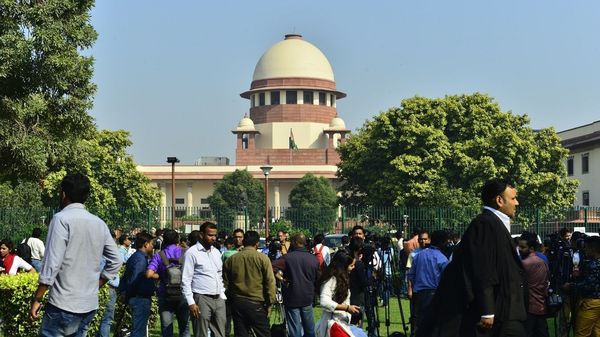Ayodhya: Muslim litigants of the Ram Janmabhoomi-Babri Masjid case here expressed dissatisfaction over the location of the site granted for building a mosque to replace the demolished Babri Masjid. They said it is too far from the city centre.
The UP government has given the allotment letter to the Sunni Waqf board for the land in Dhannipur village in Sohawal tehsil in Ayodhya on the Lucknow highway, about 18 km from the district headquarters, government spokesperson Shrikant Sharma told reporters Wednesday.
One of the litigants Mohammad Umar said the site was not a prominent place. “The Supreme Court directed that land should be allotted at any prominent place in Ayodhya, but the allotted land is 25 kilometers away in a village and off the road, so this is not prominent place,” said Umar.
Another litigant, Hasbullah Badshah Khan, said, “The 1994 Supreme Court judgment in the Ismail Faruqi case clearly mentioned that the mosque and temple will be inside the 67-acre precinct. According to the November 2019 SC judgment, land for the mosque was to be given at an important place in Ayodhya. The plot identified is under Raunahi police station and in Sohawal tehsil, it is not even in Ayodhya.”
Reacting to the allotment of the land by the Uttar Pradesh government, Zafaryab Jilani, executive member of All India Muslim Personal Law Board (AIMPLB), said renaming a town and extending its municipal limits does not mean that the land offered is still in Ayodhya.
“The Uttar Pradesh government had renamed Faizabad district as Ayodhya during Diwali celebrations last year. In all court documents part of the litigation all this while, Ayodhya was a small town, a town of Faizabad. This Ayodhya cannot be equated to the new district created by the government now,” said Jilani.
“Merely renaming a town and extending its municipal limits do not mean the land offered is still in Ayodhya,” Jilani added.
Jilani claimed that though the land was being given to the Sunni Waqf Board, Muslim organisations, including the AIMPLB, as also the Muslim community, have denounced accepting the alternate land for Babri Masjid.
The Supreme Court in a historic verdict November 9 last year in the politically sensitive Ram Janmabhoomi-Babri Masjid land dispute case backed the construction of a Ram temple by a government trust at the disputed site in Ayodhya, and ruled that an alternative five-acre plot must be found for a mosque in the Hindu holy town.







































